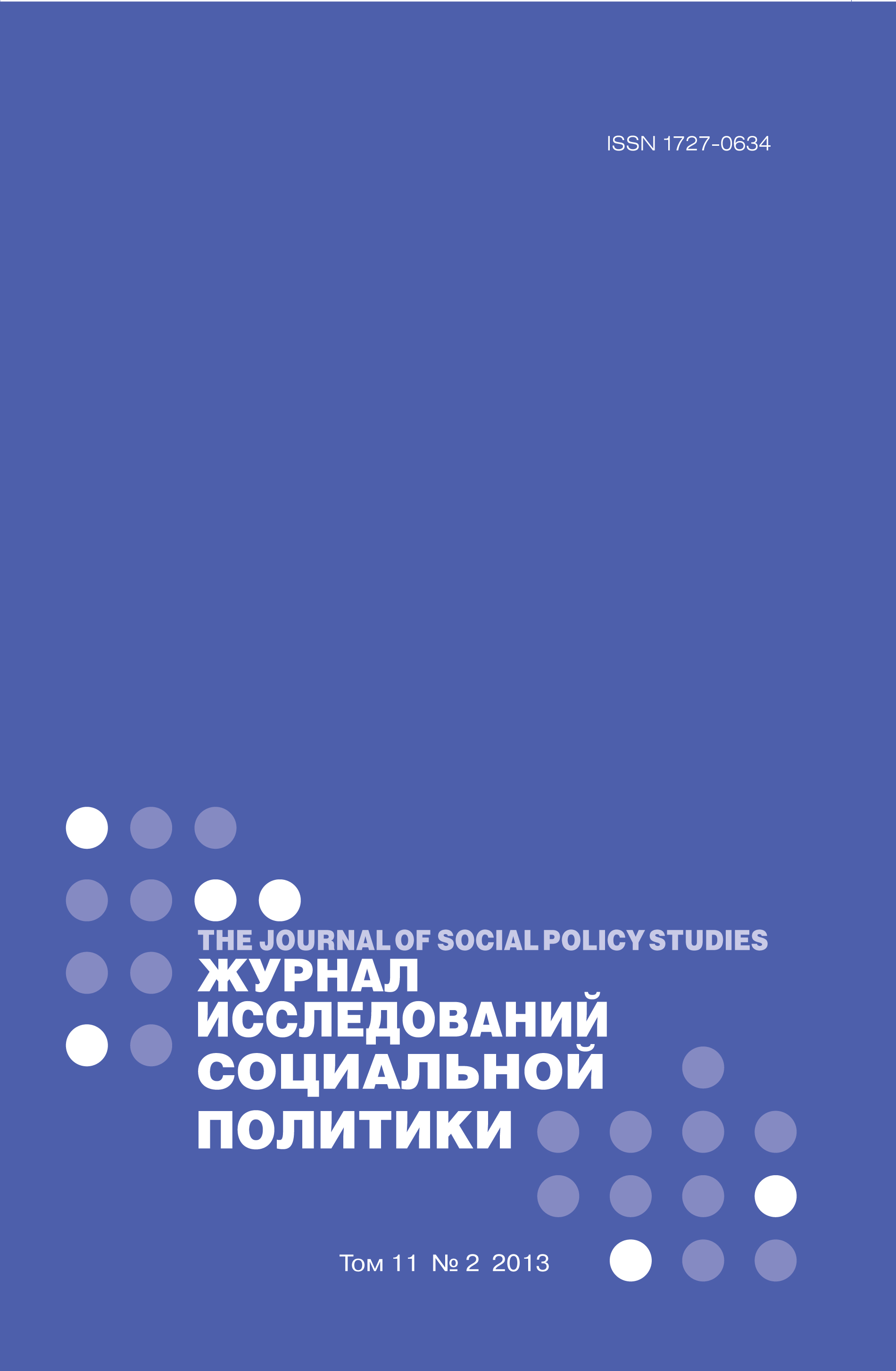Social Exclusion and Coping with it Strategies on the Intersection of Ethnicity Class and Gender
Abstract
The social inclusion of migrants is one of the key issues in Western sociology. This entails overcoming inequality in social relations and preventing the formation of an ‘underclass’ that has bad relations with other parts of society and costs social policy not only a lot of resources to remedy it but also reduces its credibility in the eyes of the community. At particular risk are women migrants, who have received little attention in scholarly circles in Russia. This article aims to remedy this absence by taking gender into account in examining the social inclusion of migrants. The study deals with the mechanisms of inclusion and exclusion of Armenian migrant women in large Russian industrial cities. This is done through a case study of the live experiences of three women that can be used to reveal the mechanisms of social exclusion. Migrant women’s practices of using healthcare and pre-school care services in Russia are in particular focus, as access to these is determined by gaining Russian citizenship. It is the in the struggle to attain citizenship that gender norms often emerge as the most serious barrier. The author also analyzes institutional and cultural barriers of access to these services. Institutional barriers are determined by the legal status of migrants in Russia, which can only be overcome through the torturous process of getting one’s documents in order. The cultural barriers are discussed in the article within a context of migrant gender culture. The author also analyses the class dimensions of social exclusion and highlights possible strategies for dealing with it. The study shows how institutional barriers are being overcome using economic and social resources of women-migrants. The norms of traditional gender culture are interpreted pragmatically and tend to be less rigid in families with higher educational background. Overall, educational level and economic capital play a key role in deciding which migrant women can overcome the barriers to social inclusion.















